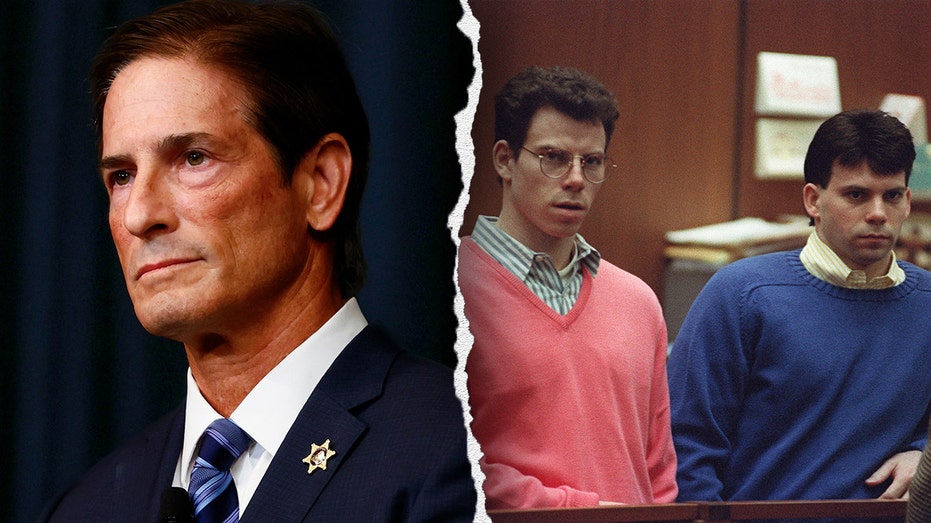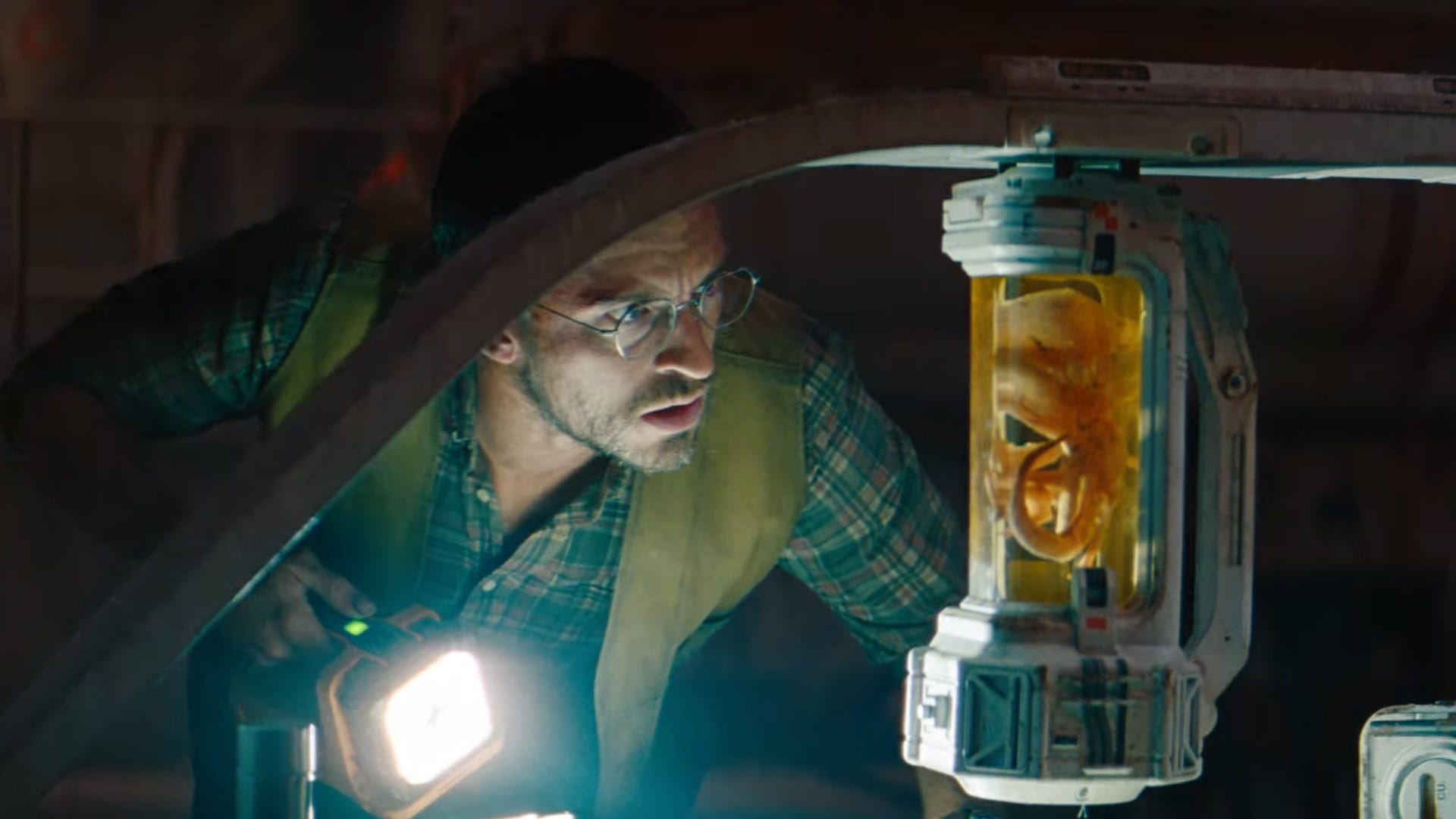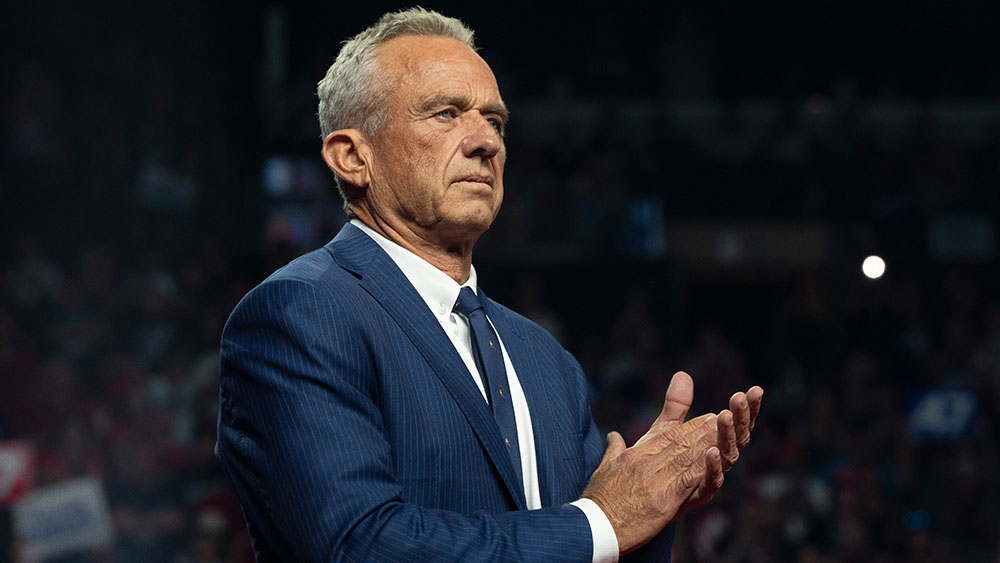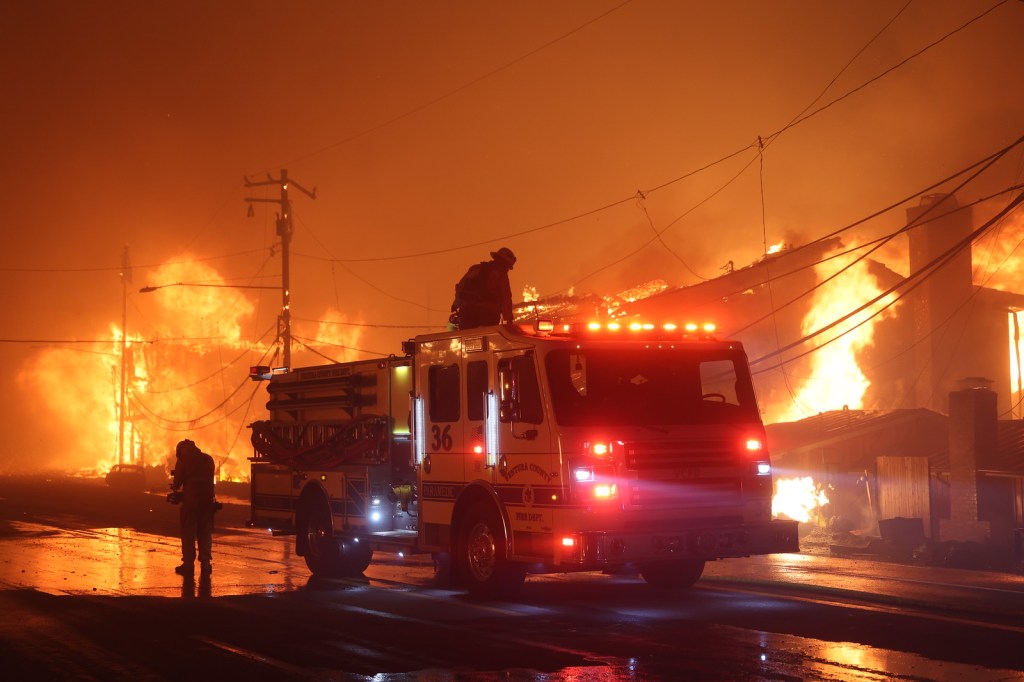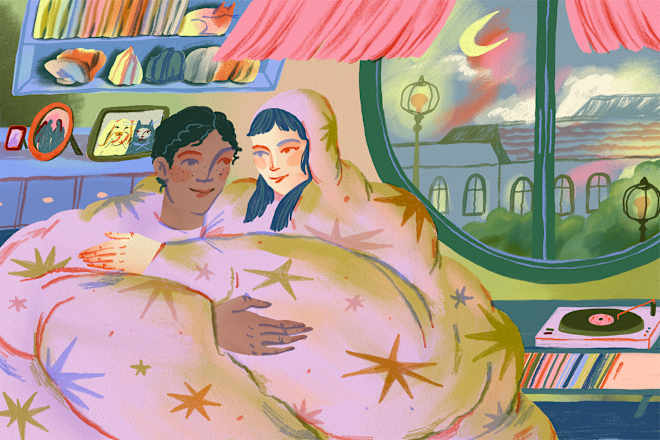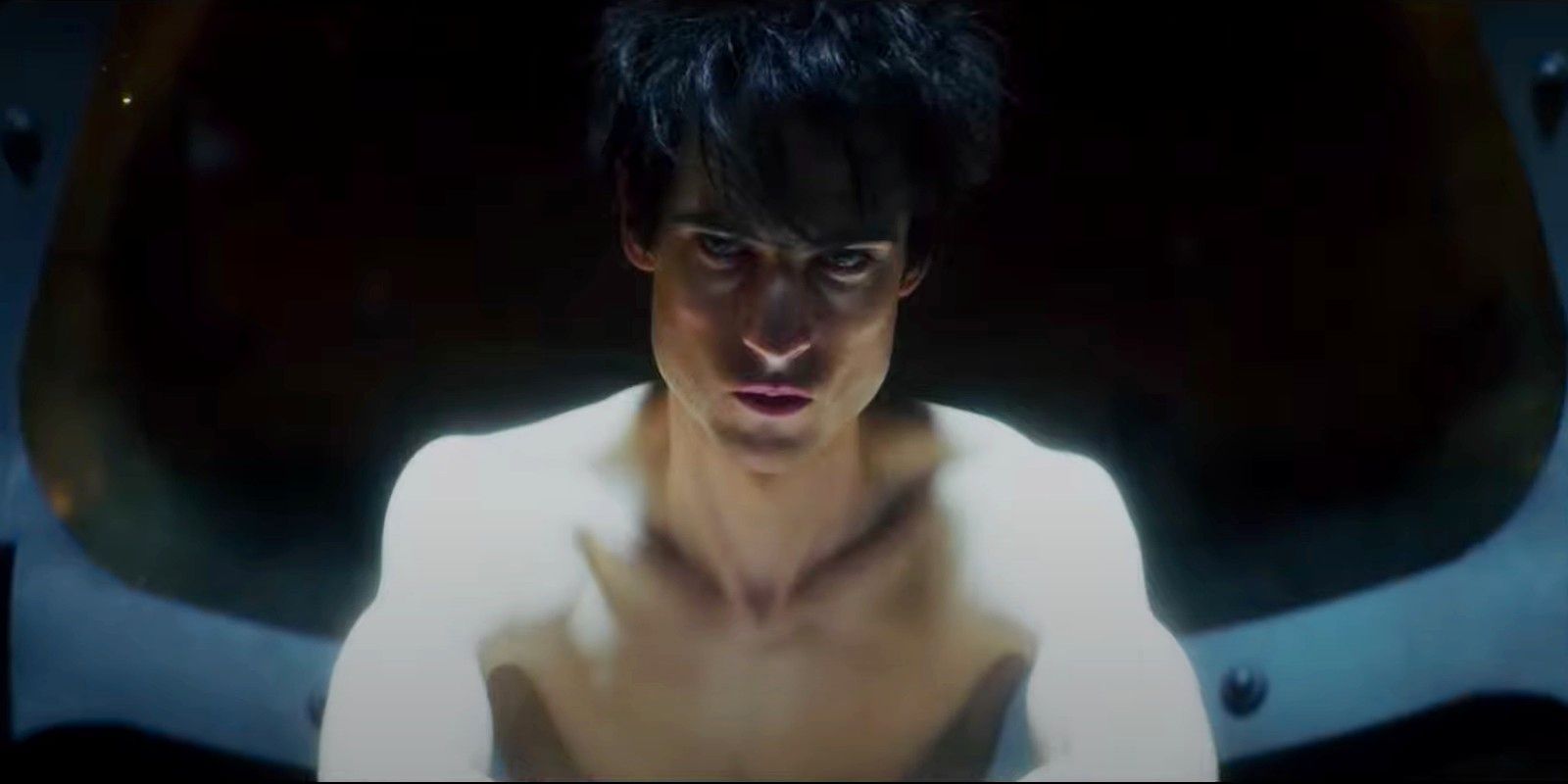The best films of Sundance 2025
The best films of Sundance 2025 include Train Dreams; Sorry, Baby; GEN_; and The Things You Kill, among others.

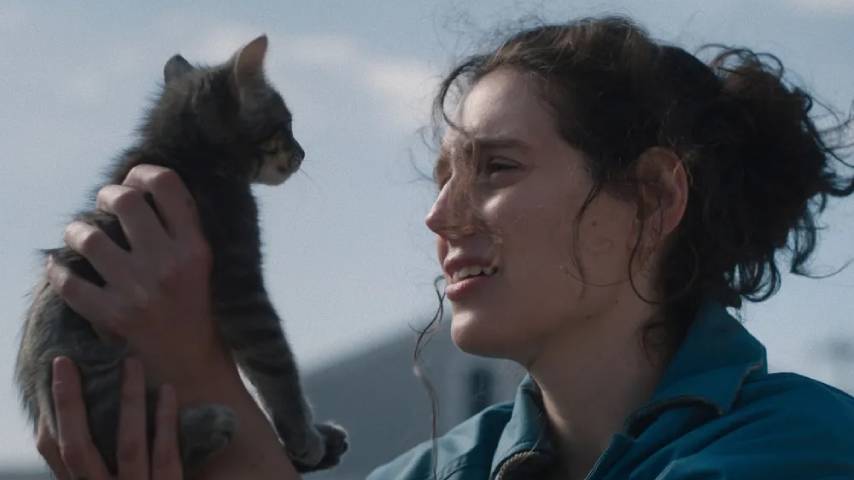
As Sundance 2025 gave us the weekend to continue watching films online after announcing its prizewinners, I took the opportunity to cram in some last-minute movies to my festival deep dive. Though many of the films covered in my dispatches from this year were middle-of-the-road, there was always the chance that a hidden gem was lurking on the Sundance app. After another few days spent on the couch, it’s time to declare the best films of Sundance 2025.
The awards ceremony for Sundance 2025, as it often does, highlighted a few deserving films (Life After, The Things You Kill) and plenty of mediocrity (Plainclothes, Ricky). Most of the best films from the festival were either overlooked or not eligible for prizes, making them less visible for those looking to headlines for guidance around what movies to add to their watchlist. That’s why The A.V. Club’s coverage is here, digging into the nasty Midnight gorefests, the truly worthy absurdities, and the riveting documentaries.
Below, you’ll find my favorites of the 43 features I saw at Sundance 2025, ranging from an elegiac story of the American West to a fairy tale where a woman chops off her own toes.
1. Train Dreams
As soon as I saw the first frames of Train Dreams, I wondered if it’d be my favorite from the festival. Filmmaker Clint Bentley proved himself a capable actor’s director with his debut Jockey, which put Clifton Collins Jr. in the spotlight as a rode-hard-put-away-wet racer, but that film had little of Train Dreams’ visual power. Invested in capturing all the colors of the verdant Pacific Northwest, Bentley and cinematographer Adolpho Veloso light their film with sun and fire. Candles, camps, lamps, and forest fires shed their warm glow onto the ever-changing life of a logger (Joel Edgerton), who, over the course of this adaptation of Denis Johnson’s novella, watches the country change around him. Haunted by his flaws and the shifting 20th century all around him, the soft-spoken railroad man transports us back in time to a generation witnessing mindboggling technological transformations. In its quiet poetry, it reflects our present plight with Terrence Malick’s deep feelings and Kelly Reichardt’s wry interactions. Netflix has picked this one up, but this one’s too good to languish on a streamer.
2. Sorry, Baby
One of the last movies I got a chance to watch at Sundance 2025 was one I couldn’t stop hearing about. Sorry, Baby took home the screenwriting award in the Dramatic competition, but it could’ve swept the category and I wouldn’t have raised an eyebrow. The feature debut from writer-director-star Eva Victor breaks a student turned professor’s life into chapters, doling out her life in nonchronological chunks before, during, and after her sexual assault. As harrowing as that sounds, Sorry, Baby is definitely one of the funniest, most charming films about post-traumatic dissociation and recovery I’ve ever seen. Victor’s performance as Agnes threads the needle not just in regards to her fragile psyche, but with clever dialogue and a tightknit relationship with her best friend (Naomi Ackie). Mannered deliveries and specific, jokey ways of acting around your closest friends can easily feel false in movies. Victor walks the tightrope perfectly, using the world of academia to further justify her characters’ sorta-heightened reality. They’re obviously in a bubble, but that bubble still feels real. Add in a few crushing filmmaking choices around the film’s most intense moments and a couple scene-stealing supporters (John Carroll Lynch!), and you’ve got a wave-making debut. I hope we’ll all be hearing a lot about Eva Victor.
3. GEN_
Most of the documentaries at Sundance 2025 were harrowing watches. War, oppression, death, injustice. GEN_ isn’t treacle, but its focus is on a charming figure saying all the right things in a world where we’re used to the exact opposite. Gianluca Matarrese’s intimate look at the daily work done by Dr. Maurizio Bini at his Italian fertilization and gender-affirming care facility undermines any negative expectation. Bini simply affirms his patients’ needs, gets them the hormones they need, and reassures them that he’ll always go to bat for them. He even asks them to put him on the phone with their parents, if the parents aren’t on board. That makes for a film that’s an easy-to-like comfort, especially since it springs from the heart of a conservative Catholic country; when your subject is so charismatic and compassionate (especially considering that Bini is an old man whose values have clearly evolved), your film already starts life on third base. But Matarrese’s minimalist stylistic approach, with tight close-ups and intentionally obscured frames, brings us even closer to these offices and invests us even further in their successes.
4. The Things You Kill
The Things You Kill doesn’t give too many signs about the head-rattling it’s about to dole out amid its family drama. Shot against stark deserts and looming mountains, Iranian filmmaker Alireza Khatami’s slick and cerebral film starts spinning apart in the aftermath of its matriarch’s death. Was the elderly woman’s death really just the result of natural causes? And can, or should, anything be done depending on the answer to that question? As her son (Ekin Koç) grapples with these lingering doubts, impotence and violence—two terrifying poles of threatened masculinity—threaten to pull him and the rest of the film's men apart. Add in one mysterious gardener (Erkan Kolçak Köstendil), a few shocking bursts of style, and an increasingly blurry line between sweaty dreams and the cold reality of day, and The Things You Kill becomes an arresting fable.
5. The Perfect Neighbor
An fist-clenching comparison between community action and the gun-happy police state, The Perfect Neighbor unfolds its nightmarish true-crime through the body-cam language of Cops. In a low-income Florida neighborhood, an older white lady is a known menace whose racism lashes out of her in frightening outbursts and endless calls to law enforcement. Each time, the cops show up, back up her Black neighbors and their children (who are always the target of the white woman’s ire), and do…nothing. Of course, without repercussions, things are going to get much worse. As the film’s horrors wear on, its upsetting and explicit access drive its points into the pit of your stomach. Stand-your-ground laws, gun ownership, the ineffectiveness of police even when they’re doing everything “right” (because this body-cam footage wouldn’t exist if they thought they were doing something “wrong”)—all this and more weighs heavy throughout the tough watch. It leaves you angry and cold, like so many films and news stories about so much needless death in this country.
6. Sunfish (& Other Stories on Green Lake)
Though it initially presents as a standard-issue Sundance Film, with a sun-dappled aesthetic and a few indie-gem stories about small-town life, Sunfish (& Other Stories on Green Lake) is both specific enough in scope and loving enough in detail to stand out as a skilled debut. Filmmaker Sierra Falconer connects four small stories into her sharply observed community anthology, all centered around lake folks and the dreams that bubble under their placid surfaces. The first two stories are strongest and most focused, but the latter two still contain winning moments. Throughout, Falconer finds honesty in her characters. There’s almost a Stephen King-like sense of community to the lake town Falconer has painted, the tourists and townies alike having real relationships with each other and the water itself. Though it can be a little uneven, as any anthology is, Sunfish & Other Stories On Green Lake is a bright and varied short-story collection, and an impressive showcase for a filmmaker operating in multiple modes over the course of this streamlined tour around the lake.
7. April
Georgian filmmaker Dea Kulumbegashvili’s Medusa-like abortion drama April is a medical, cultural horror movie. You stare, turned to stone by the film’s unwavering gaze. A brutal, sometimes literally monstrous tale of an obstetrician (Ia Sukhitashvili) who moonlights giving illegal small-town abortions, April lingers on unrelentingly uncomfortable images—including those of actual childbirth. Its slow pace, quiet perseverance, and unflinching camera construct an oppressive atmosphere reflective of a woman’s place in this controlling society. Under fire from every corner, Sukhitashvili relishes in small rebellions but rarely lets anything through her steely surface as she lurches through a world that loathes her. As she offers a modicum of freedom and autonomy to the women around her, she also attempts to steal a bit for herself where she can—leading her to riskier and riskier places, and warping her self-perception into something ghoulish.
8. The Ugly Stepsister
Norwegian filmmaker Emilie Blichfeldt sits body-horror geeks down for the world’s most upsetting bedtime story in her adaptation of Cinderella. Focusing on The Ugly Stepsister, her horror film puts Elvira (Lea Myren) through her paces as it brings the beauty industry into a medieval dungeon. Noses and toeses are brutalized by the nasty film’s inventive purveyors of pain, as Elvira gets herself done up for the prince’s upcoming ball. Of course, she doesn’t look better as she suffers, bleeds, and pukes all over the movie. She looks like she’s gone through hell. But isn’t that what it takes to keep up with the lords of the neighboring castle? In this blistering, squirm-inducing satire of beauty standards, a fairy tale period aesthetic gets very, very juicy. Not for the faint of heart, it’s a gross-out good time for the rest of us.
9. By Design
Another film that’s not going to be for everyone, Amanda Kramer’s surreal tale of a meek woman (Juliette Lewis) who swaps bodies with a really nice chair is built to bounce people off. But beyond this oddball premise is a well-appointed and intentionally theatrical daydream that wonders whether the world treats a nice chair better than a human woman (a question everyone knows the answer to). Even in its most over-the-top and stagey moments, in one-sided conversations with a now-soulless Lewis’ slumped and motionless body and in interpretive dances, By Design captures real feelings in unreal ways. There’s yearning and need driving this desire to become furniture—and yes, it gets horny for those wondering if the submissive subtext ever breaches the surface—and pain at its core. Mamoudou Athie, who plays a man obsessed with the chair-lady (not the lady-chair), explores another angle of this adrift need in a great “normal 'til it’s not” performance. Kramer bolsters this strange relationship with an ‘80s-inflected aesthetic—gauzy crossfades through pastel rooms, each suffused with the visual hallmarks of softcore erotica—and aggressive artificiality. By Design can definitely skew into the annoyingly kooky side of things, but often the weirdness all clicks into place to find amusement and poignancy in equal measure.
10. Heightened Scrutiny
A sadly relevant documentary for a nation increasingly, virulently hostile to trans people, Heightened Scrutiny tags along as ACLU lawyer Chase Strangio prepares to argue United States v. Skrmetti in front of the Supreme Court. Sam Feder’s intimate film follows the groundbreaking lawyer during his research and practice, but more compellingly offers up a massive collection of talking heads who make the case that mainstream media publications like The Atlantic and the New York Times are directly to blame for stoking the fires of transphobia. By breaking down the “opinion piece to judicial citation” pipeline, with evidence that, within a week of publication, some of these anti-trans screeds are being read and used to back up the opinions of judges and lawyers alike in courtrooms around the country, Heightened Scrutiny highlights how the legal system is only a small part of what this community has to deal with—and how that system often cares more about other factors than the actual law. Amid these infuriating testimonials stands solidarity, friendship, and community. Strangio makes his case at the highest court in the land, but also supports those protesting his local school board. The film has its pacing hiccups, but its message is searing and powerful throughout.

